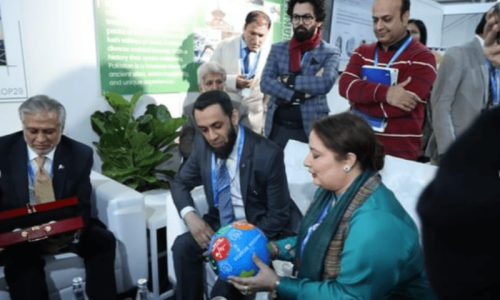DHAKA: Bangladesh has overtaken India on the prosperity index for the first time this year on the back of its successful development policies.
“At present, the grand South Asian leader might learn a trick or two from its more nimble regional compatriot,” said the 2013 Legatum Prosperity Index, an annual ranking of 142 countries based on a variety of factors including wealth, economic growth, personal wellbeing and quality of life.
In the index compiled by London-based Legatum Institute, Bangladesh came in at 103, three spots above its neighbour, who slipped 5 spots down to 106, and nearly 30 spots above Pakistan, who came in at 132. “For Bangladesh, surpassing India is quite an accomplishment considering that the country’s gross national income per capita – at purchasing power parity – amounts to just half that of its larger neighbour.”
The index reveals that despite this, Bangladeshis not only live 3.4 years longer than their Indian counterparts, but fewer are undernourished, a lower number die in infancy and more have access to sanitation.
Furthermore, the average Bangladeshi worker has more secondary years of education (1.8 years) than his or her Indian counterpart (1.2 years).
“Perhaps as a result, more respondents in Bangladesh reported being satisfied with the quality of education they receive and more felt that children were learning in their society.
Such achievements explain why Bangladesh’s success in improving the lives of its people has begun to generate substantial public interest.” These impressive achievements suggest that development and progress are not solely reliant on rapid economic growth. India’s experience suggests that GDP growth, in itself, is not enough, said the report.
Between 1995 and 2012, India’s economy grew each year, on average, by 1.2 per cent more than Bangladesh’s (5.6pc compared to 6.8pc) and this occurred despite India’s recent slowdown.
As a result, Bangladesh spends roughly four times less per person than India on employment programmes and yet had an employment to population ratio over 10pc higher than India in 2007.
“While Bangladesh’s economic growth has not attracted the same attention as India’s, its work on microfinance — the provision of small loans to poor recipients without access to financial services — certainly has.”
Originated in the 1970s in Bangladesh and is now viewed as an important way of tackling poverty, microfinance has had a much greater impact on Bangladesh than its neighbour, said the report launched last week.
“Despite all these successes, Bangladesh still has acute problems, particularly in terms of governance: the country has been under military rule three times in the past three decades.”
Zaid Bakht, research director of Bangladesh Institute of Development Studies, said there is room to get much higher in the ranking. “We can increase the flow of remittance if we can develop the skills of outbound workers. Similarly, the garment sector can help the country earn more if it can diversify into high-value products. If our politicians can provide congenial environment to our entrepreneurs, the sector can contribute to the economy further.”
By arrangement with The Daily Star/ANN










































Dear visitor, the comments section is undergoing an overhaul and will return soon.